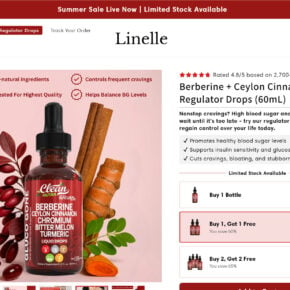Scams have become increasingly prevalent in the digital age, with fraudsters constantly finding new ways to deceive unsuspecting individuals. One such scam that has recently gained traction is the Fake Kroger ‘Free Check’ Facebook scam. This scam preys on the trust and goodwill of users, enticing them with the promise of a free check from Kroger, a popular supermarket chain. In this article, we will delve into the details of this scam, how it works, what to do if you have fallen victim, and provide valuable insights to help you stay safe online.
![Kroger ‘Free Check’ Facebook Scam [Explained] 1 Scams](https://malwaretips.com/blogs/wp-content/uploads/2023/07/Scams.jpg)
What is the Fake Kroger ‘Free Check’ Facebook Scam?
The Fake Kroger ‘Free Check’ Facebook scam is a deceptive scheme that aims to trick users into believing they have won a free check from Kroger. The scam typically starts with a Facebook post or message claiming that Kroger is giving away free checks to a select number of individuals. The post often includes enticing language and promises a substantial amount of money, such as $500 or $1,000.
Once users are lured in by the promise of free money, they are directed to click on a link or fill out a form to claim their prize. However, these actions are where the scam begins to unfold.
How Does the Scam Work?
The scammers behind the Fake Kroger ‘Free Check’ Facebook scam employ various tactics to deceive users and extract personal information or money from them. Here is a step-by-step breakdown of how the scam typically unfolds:
- Users come across a Facebook post or message claiming to offer a free check from Kroger.
- The post includes a link or directs users to a website where they are asked to provide personal information, such as their name, address, phone number, and sometimes even their social security number.
- Some versions of the scam may require users to complete surveys or download malicious software.
- After submitting their information, users are often redirected to another page that claims they need to pay a small fee or provide their credit card details to cover processing or shipping costs.
- Once users provide their payment information, the scammers have access to their credit card details and can potentially use it for fraudulent activities.
It is important to note that Kroger is not involved in these scams in any way. The scammers are simply using the company’s name and reputation to gain the trust of unsuspecting individuals.
What to Do If You Have Fallen Victim
If you have fallen victim to the Fake Kroger ‘Free Check’ Facebook scam or any similar scam, it is crucial to take immediate action to protect yourself and minimize the potential damage. Here are the steps you should follow:
- Disconnect from the scam: If you have clicked on any links or provided personal information, disconnect from the scam immediately. Close any suspicious websites or pop-ups and refrain from engaging further with the scammers.
- Scan your device for malware: Scammers often use these scams as a way to distribute malware or viruses. It is recommended to run a scan with a reliable antivirus software, such as Malwarebytes Free, to ensure your device is clean.
- Monitor your accounts: Keep a close eye on your bank accounts, credit cards, and any other financial accounts for any suspicious activity. If you notice any unauthorized transactions, contact your bank or financial institution immediately.
- Report the scam: Report the scam to the appropriate authorities, such as the Federal Trade Commission (FTC) or your local law enforcement agency. This helps in raising awareness and potentially preventing others from falling victim to the same scam.
- Stay vigilant: Scammers are constantly evolving their tactics, so it is important to stay informed and remain vigilant. Be cautious of any offers that seem too good to be true and always verify the legitimacy of any promotions or giveaways directly with the company involved.
Conclusion
The Fake Kroger ‘Free Check’ Facebook scam is a deceptive scheme that preys on the trust and goodwill of users. By understanding how this scam works and taking the necessary precautions, you can protect yourself from falling victim to such fraudulent activities. Remember to always be cautious online, verify the legitimacy of offers, and report any suspicious activity to the appropriate authorities. By staying informed and vigilant, you can navigate the digital landscape with confidence and avoid becoming a victim of scams.




![How to Remove Beyondtheadventure.org Pop-ups [Virus Removal Guide] 9 McAfee scam 4](https://malwaretips.com/blogs/wp-content/uploads/2023/08/McAfee-scam-4-290x290.jpg)